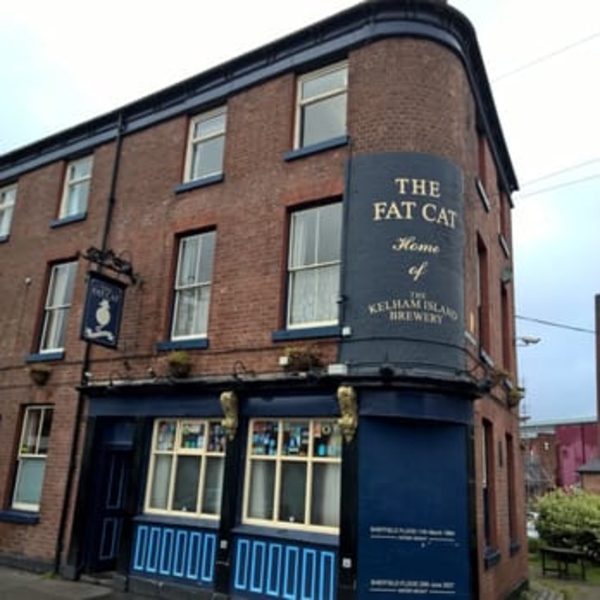How Sheffield pub boosted Landlord
Added: Thursday, March 10th 2022

I took a break from driving at a pub on the Beds/Bucks border fittingly called the Travellers Rest. It’s an old coaching inn with beams, log fires and a welcoming array of hand pumps on the bar but to my dismay I found that no fewer than three of the pumps offered Doom Bar.
I shall say no more about a beer brewed allegedly in Cornwall but with strong links to Burton-on-Trent for fear counsel for Molson Coors threaten to put me in the stocks. My anguish was relieved when I saw that a lone pump was offering that divine pale ale from Yorkshire, Timothy Taylor Landlord.
As I slowly sipped a half pint – I was driving – I thought of the remarkable rise to national fame of a beer that was once confined to pubs within striking distance of the brewery in Keighley. It’s a rise that’s bound up with the career of the late and much-missed Dave Wickett who died 10 years ago after a long and brave battle with cancer.
Dave was a committed member of CAMRA and was active on its Economics and Industry Committee that studied the monopolistic activities of the national brewers. He was an economics lecturer at Sheffield Polytechnic but tired of what he called “this dismal science” and decided to follow his true love and run a pub.
In 1981 he took over the Alma pub in Sheffield that he renamed the Fat Cat. Nine years later he launched the Kelham Island Brewery in Steel City that won the Champion Beer of Britain award in 2004 for Pale Rider, one of the first of the new breed of golden ales.
Back in 1981 he needed beer for the Fat Cat and contacted the local brewer, Wards. The head brewer came round, toured the pub and said: “I’ll put some tanks in the cellar and pressure points on the bar.”
When Dave said he didn’t want tank beer and was looking for casks and hand pumps, the head brewer snorted “Nobody wants to drink that any more” and stormed off in a huff.
Dave had a pub with no beer and in desperation he phoned Timothy Taylor and asked for an 18-gallon kilderkin of Landlord.
“Sheffield?” a voice replied. “We don’t deliver there – it’s outside our trading area. You’ll have to come and pick it up.” So Dave drove from South to North Yorkshire, returned with the cask of beer and phoned the brewery three days later to say he had sold all 18 gallons and wanted two more.
“You want two kils of Landlord?” an astonished voice said. “We’ll deliver!” As a result, Landlord burst out of its remote region and rapidly found favour throughout the country.
Landlord was launched in the 1960s and went on to win an array of prizes, including four times being named Champion Beer of Britain. Before covid and lockdowns, Taylors was brewing 70,000 barrels a year, of which 80 per cent was cask. Landlord accounted for 80 per cent of cask sales.
Its unique character comes from an unusual brewing regime and ingredients. Back in the 1960s and 70s, the then head brewer, Allan Hey, wasn’t a fan of English “steel tipped” barley and chose instead a “juicy” variety from Scotland, Golden Promise, used mainly by whisky distillers.
Where hops were concerned, Allan blended whole flower Fuggles, Goldings and Whitbread Goldings Variety with Styrian Goldings from Slovenia, then part of Yugoslavia. It would be fascinating to learn how Allan came across a hop grown in a country that was then behind the Iron Curtain.
The intense hop character of the beer is achieved by allowing the hopped wort – the sugar-rich extract boiled with hops -- to circulate over a deep bed of Styrians prior to fermentation.
WhileTaylors brews a range of excellent beers, including the delicious Golden Best light mild and Boltmaker, a best bitter that was named Champion Beer of Britain in 2014, Landlord remains the pinnacle of the brewery’s success.
I revelled in the beer’s harmony of malt and hops that has made it a national treasure and I raised my glass in the Travellers Rest to the memory of Dave Wickett who had played such a key role in its success.
•First published in What’s Brewing, February 2022.








